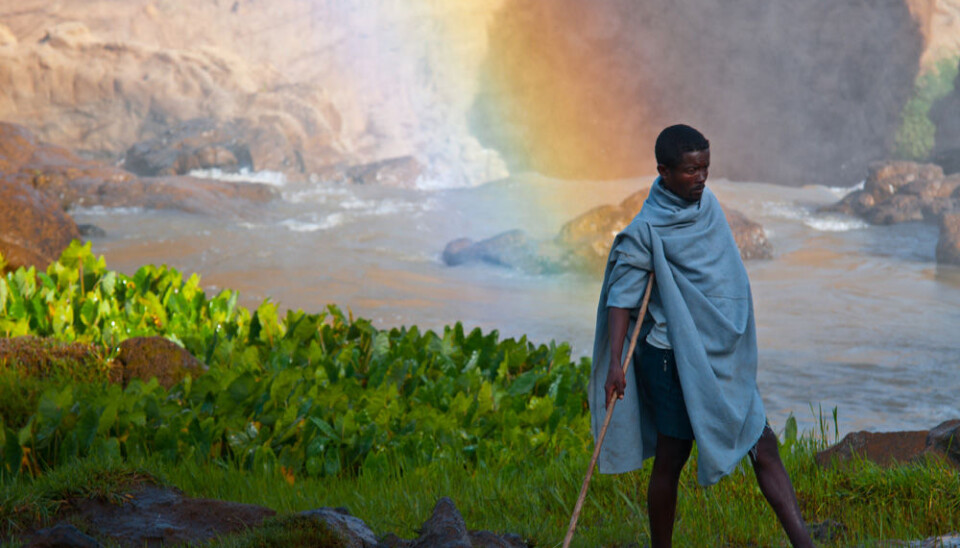An article from University of Oslo

Old disputes on using the Nile may soon be solved
Millions of people in need of water are unable to utilize the Nile due to old obscure agreements. Research now shows that several of the treaties are no longer valid.
Denne artikkelen er over ti år gammel og kan inneholde utdatert informasjon.
Fresh water has always been, and remains to be, the basis of our existence through all times and is the one natural resource no one can do without. Still, millions of people in Africa sustain such living conditions where access to fresh water is a limited resource. It is a paradox that many of these people live along the banks of the Nile.
Less than 3 percent of the earth’s water supplies are freshwater. Most of the world’s water reserves are saltwater (97 percent). Of the freshwater reserves, the world’s rivers constitute only a small part of this compared to water bound up in icebergs, glaciers, groundwater, lakes and marshes.
Disagreements on utilization and division
The river Nile is a natural resource, owned in a fellowship of 11 countries including South-Sudan: Egypt, Sudan, Eritrea, Ethiopia, Kenya, Uganda, Rwanda, Burundi, Tanzania and Congo. About 420 million people in total live in this region. Sudan and Egypt have been the most eager when utilizing the river economically through the establishment of agriculture and industry, and through general consumption. This has affected the developmental pattern of the countries to a considerable degree.
"The causes of hunger- and thirst catastrophes of the delta are numerous and complex, and disagreements on the rights to and division of the Nile´s water is one of the major causes," Tadesse Kassa Woldetsadik explains.
On a University of Oslo scholarship he has written a doctorate on the rights to the water of the river in light of old treaties and newer international legislation on water resource utilization.
He describes how conflicts on division of the water and construction of dams in the upper part of the Nile affect the lives of millions of people.
Old treaties has prevented utilization
Old treaties from the 1900s have regulated ownership and rights to utilization of the Nile's water for the countries and people living along the banks of the river up till this day. Because of these old agreements, people living next to the water resources of the upper Nile have been prevented from utilizing the resources for their own needs, even though the water is in their nearby surroundings.
However, the upper-riparian countries fight against old arrangements and want to use the water resources to develop their own territories, socially and economically.
Encroachments which the upper-riparian states make, affect the access to and amount of water in the lower regions.
"All of this contributes to conflicts between the countries both diplomatically and juridically," the researcher states.
In his study Woldetsadik explains which countries that have what rights under international public law. The dissertation illustrates existing treaties and their status, and what specific rights the countries will have according to the principles of International Water Resources Law.
No longer valid
"It is evident that most of the treaties are no longer valid and that the future of the delta depends on international legislation and the principle of equitable utilization as an international legislation on the utilization of water resources describes. However, transboundary issues and what equitable utilization of the river imply for the riparian countries along the Nile must be defined by the states in conjunction," says Woldetsadik, whose birth country is Ethiopia.
The researcher thinks it is a realistic notion that the riparian states will come to a consensus on this: "It is also the only option out of the difficult situation the countries have put themselves in through the old treaty regime."
The negotiations between the states on common utilization of the Niles' basis resources have come a long way, and they are almost ready to conclude on the basis of rules and principles of the Water Resources Law. However, a definition of the practical implications of the rules and principles to the different countries of the delta still remains.
"My assignment has been to make the best possible definition of these implications adapted to the situation of the delta surrounding the Nile," says Woldetsadik.






























